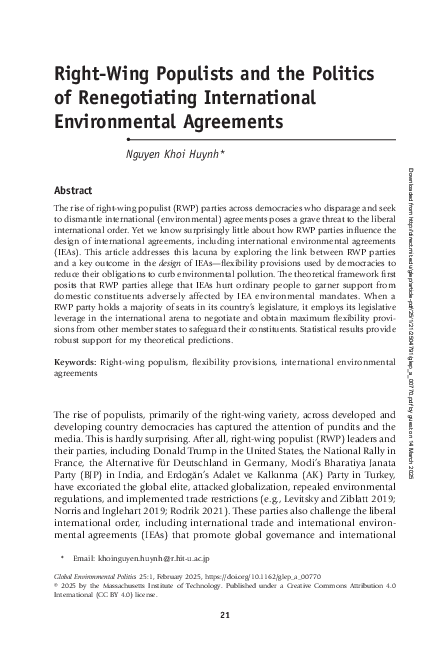Right-wing populists and the politics of renegotiating international environmental agreements

2025
25
1
21-45
populism ; environmental policy ; international agreement
Politics
https://doi.org/10.1162/glep_a_00770
English
Bibliogr.
"The rise of right-wing populist (RWP) parties across democracies who disparage and seek to dismantle international (environmental) agreements poses a grave threat to the liberal international order. Yet we know surprisingly little about how RWP parties influence the design of international agreements, including international environmental agreements (IEAs). This article addresses this lacuna by exploring the link between RWP parties and a key outcome in the design of IEAs—flexibility provisions used by democracies to reduce their obligations to curb environmental pollution. The theoretical framework first posits that RWP parties allege that IEAs hurt ordinary people to garner support from domestic constituents adversely affected by IEA environmental mandates. When a RWP party holds a majority of seats in its country's legislature, it employs its legislative leverage in the international arena to negotiate and obtain maximum flexibility provisions from other member states to safeguard their constituents. Statistical results provide robust support for my theoretical predictions."
This work is licensed under the terms of the Creative Commons Attribution 4.0 International License (http://creativecommons.org/licenses/by/4.0/).
Digital
The ETUI is co-funded by the European Union. Views and opinions expressed are however those of the author(s) only and do not necessarily reflect those of the European Union or the ETUI.